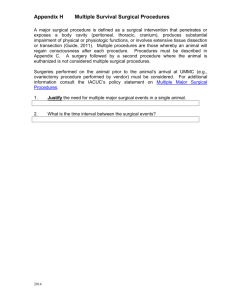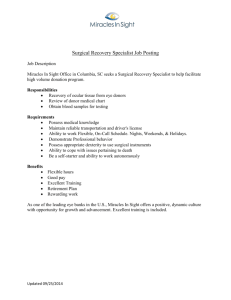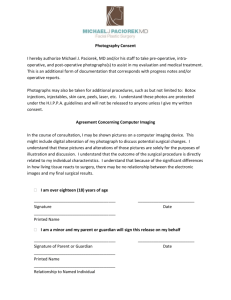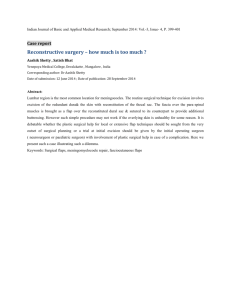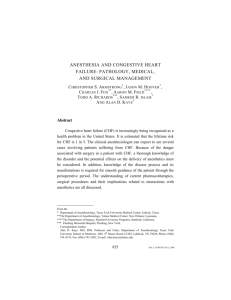Current Status for Endoscopic Vein-graft
advertisement
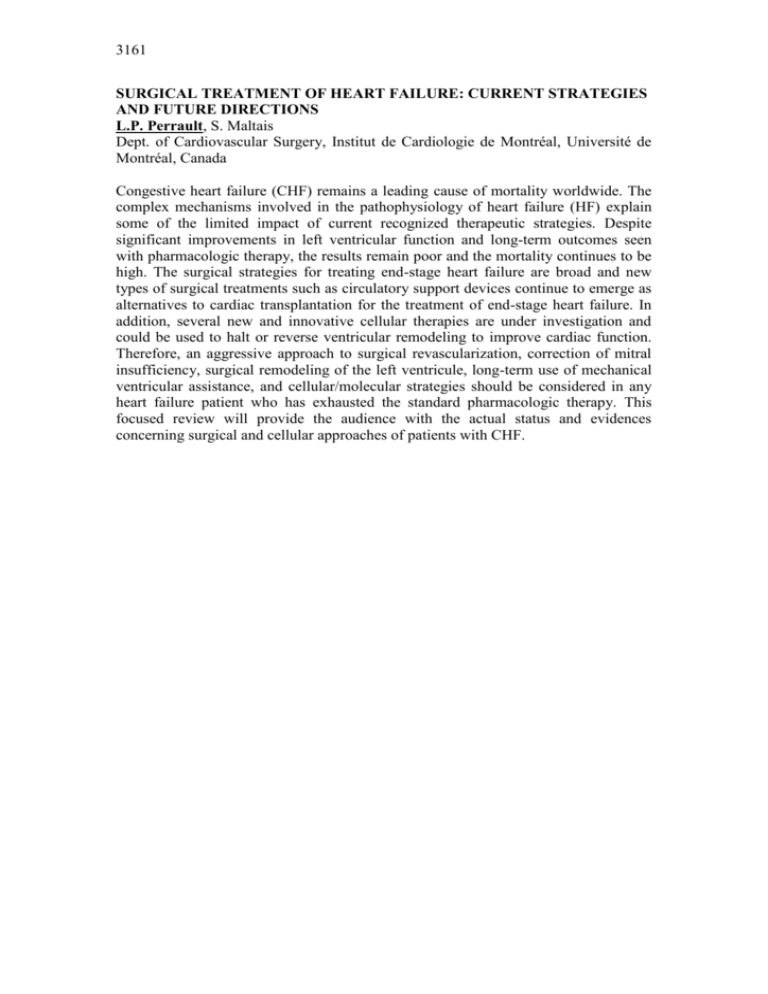
3161 SURGICAL TREATMENT OF HEART FAILURE: CURRENT STRATEGIES AND FUTURE DIRECTIONS L.P. Perrault, S. Maltais Dept. of Cardiovascular Surgery, Institut de Cardiologie de Montréal, Université de Montréal, Canada Congestive heart failure (CHF) remains a leading cause of mortality worldwide. The complex mechanisms involved in the pathophysiology of heart failure (HF) explain some of the limited impact of current recognized therapeutic strategies. Despite significant improvements in left ventricular function and long-term outcomes seen with pharmacologic therapy, the results remain poor and the mortality continues to be high. The surgical strategies for treating end-stage heart failure are broad and new types of surgical treatments such as circulatory support devices continue to emerge as alternatives to cardiac transplantation for the treatment of end-stage heart failure. In addition, several new and innovative cellular therapies are under investigation and could be used to halt or reverse ventricular remodeling to improve cardiac function. Therefore, an aggressive approach to surgical revascularization, correction of mitral insufficiency, surgical remodeling of the left ventricule, long-term use of mechanical ventricular assistance, and cellular/molecular strategies should be considered in any heart failure patient who has exhausted the standard pharmacologic therapy. This focused review will provide the audience with the actual status and evidences concerning surgical and cellular approaches of patients with CHF.


